New Year, New Perspectives: Sophisticated Offerings for 2017-18
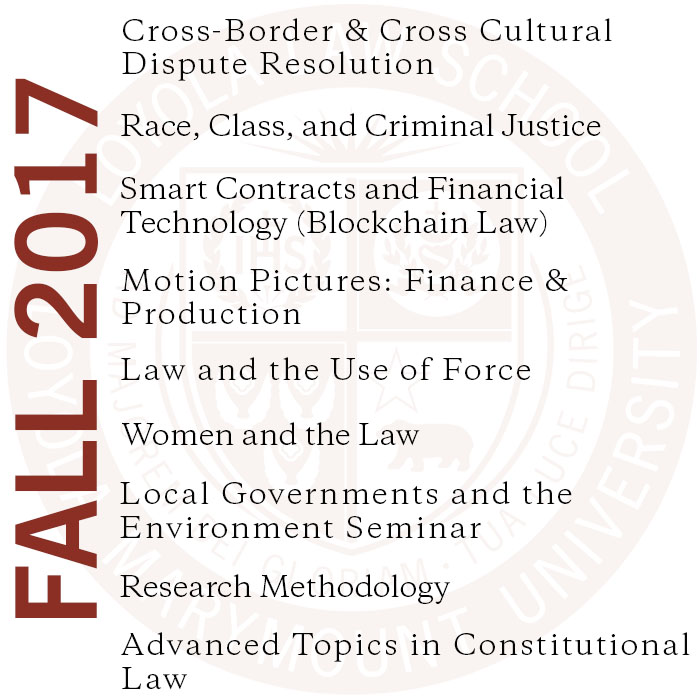
This academic year, Loyola is offering a wide array of exciting classes. Many are seminars or similar courses where you can get a unique small-class experience with leading legal experts. Below is a sampling.
 Hiro Aragaki
Hiro Aragaki
Alternative Dispute Resolution: Law & Practice. [Fall 2017] In a world in which more than 95% of cases never reach a trial, a sound understanding of alternative dispute resolution processes such as arbitration and mediation is becoming an increasingly important tool in any litigator’s toolbox. In this course, students will learn about the law and practice of ADR by participating in extended case simulations that will allow them to experience the arbitration and mediation processes from start to finish.
Cross-Border & Cross Cultural Dispute Resolution. [Fall 2017] Co-taught by a visiting professor from Italy, this class introduces students to the settlement of cross-border disputes: disputes involving parties from different cultures, governed by the laws of several different jurisdictions, or involving events occurring in different countries. This is also one of the few classes offered in any law school where students will learn about the role of cultural difference through limited interactions with students from around the globe.
Professor Aragaki is an international expert on alternative dispute resolution and a prize-winning legal scholar.
 Jeffery Atik
Jeffery Atik
Smart Contracts and Financial Technology (Blockchain Law). [Fall 2017] A workshop exploring the legal implications of blockchain and distributed ledger technologies, with a focus on cryptocurrencies (Bitcoin), smart contracts and financial use cases. The class will feature a close exploration of the network and cryptographic features of Bitcoin, the first and most utilized cryptocurrency built on the blockchain. The class will then review blockchain technology more broadly in order to appreciate its suitability (advantages and limitations) for a variety of ‘smart contract’ use cases, including payments, swaps and other derivatives, and land transfer. A number of biomedical blockchain use cases will also be examined.
Professor Atik is an expert on international finance and trade. He blogs at Attraverso.
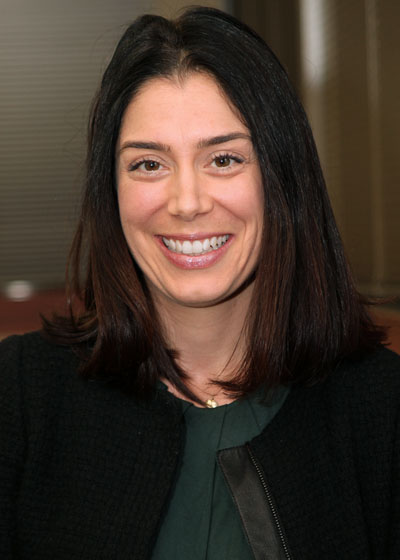 Samantha Buckingham
Samantha Buckingham
Race, Class, and Criminal Justice. [Fall 2017] In the course, you will examine how race and socio-economic status intersect in the various stages of the criminal justice system: policing of crime, court prosecution, and sentencing. Students will examine the historical framework for contemporary issues such as racial profiling, police brutality, gangs, terrorism, juvenile justice, and mass incarceration. Experts in the field will join the class as guest speakers. Students will be responsible for reading each week and will write reaction papers to the reading and a final paper of 15 pages. There is no exam.
Professor Buckingham is the Director of the Juvenile Justice Clinic, in Loyola's Center for Juvenile Law and Policy.
 Jay Dougherty
Jay Dougherty
Motion Pictures: Finance & Production Seminar. [Fall 2017] Simulate the work motion picture lawyers do on a real event-based film. Not only will you hone your skills at reading and interpreting contracts and collective bargaining agreements while learning the structures of various rights and talent deals, you will do hands-on drafting of several of those contracts using actual film studio forms. Contract drafting experience is essential to any transactional law practice, including the film and media industries, so you will be far ahead of the "pack" in the job market by having this kind of experience.
Professor Dougherty is an expert in entertainment law, an experienced entertainment lawyer, and a professional guitarist. He directs the Entertainment Law Concentration.
 David Glazier
David Glazier
Law and the Use of Force. [Fall 2017] Ripped from the headlines about issues like Syria and Korea, this course will explore the legality of resort to use of armed force under international and U.S. domestic law, including both the Constitution and the War Powers Resolution. After establishing the governing legal rules, it will critically assess real world events such as the U.S. role in the 1999 NATO air campaign over Kosovo and the 2011 Libyan intervention, and the use of drones for targeted killing. The class will also examine the emerging concept of humanitarian intervention. Prior knowledge of international law is not required.
Professor Glazier, a former U.S. naval commander, is a national expert on the law governing the use of armed force, drones, Guantánamo detention, and the military commissions.
 Mary Hansel
Mary Hansel
Human Rights At Home. [Spring 2018] Today’s political climate underscores the need for civil rights and social justice advocates in the U.S. to engage with international human rights law. Indeed, U.S. lawyers are increasingly invoking human rights standards in domestic courts and petitioning international bodies to address issues typically deemed national or local concerns — such as homelessness, immigration, domestic violence, police misconduct and discrimination. Engagement with international human rights law can greatly enhance domestic advocacy, as well as remind us that human rights issues arise every day in our own backyards. In this class, students will learn a variety of rights-based strategies and draft an international legal brief to address a domestic issue of their choosing.
Professor Hansel is Deputy Director of the International Human Rights Clinic at Loyola Law School. She is an experienced litigator who publishes widely on international human rights.
 Christopher Hawthorne
Christopher Hawthorne
Sentencing and Post-Conviction: Problems and Remedies. [Spring 2018] In the criminal justice system, less than 10% of all defendants will go to trial – but 100% of defendants will be sentenced. In this, the most complex and philosophical area of criminal law, we will get beyond the elements of the offense, and drill down to the core questions of the nature and goals of punishment, its (partial) evolution from systems of revenge, and the nature of criminal culpability, rehabilitation and redemption. We will discuss America’s love affair with incarceration and recent attempts to find effective alternatives. Students will be required to write an in-depth sentencing memorandum, as well as frequent hypotheticals and meditations on the sentencing process.
Professor Hawthorne runs the Juvenile Innocence & Fair Sentencing Clinic at Loyola Law School, where he has been involved as an advocate and expert with most of the major amendments to California sentencing law during the past six years.
 Justin Hughes
Justin Hughes
International Intellectual Property. [Spring 2018] This course is for students who want a comprehensive overview of the international intellectual property (IP) law which governs national copyright, patent, and trademark laws, including U.S. law. After reviewing the principal multilateral treaties establishing the international IP regime, the course explores the international IP system through a series of contested and yet unresolved issues at the international level: the protection of databases; the protection of geographic names ("Napa," "Champagne"); exceptions to copyright and patent protection; enforcement standards; the patenting of life forms; and other topics.
Intellectual Property Advanced Topics Seminar. [Spring 2018] In this seminar, we will study a set of 7-9 scholarly projects, either recently published articles or works-in-progress across the range of intellectual property and information law. Most of these scholarly projects will be presented by visiting speakers; this year we will host professors from Carnegie Mellon, Duke, Singapore Management University, Arizona, Iowa, UC Irvine, and the University of San Diego. Topics will range from the protection of Native American symbols to copyright over DNA sequences to the free speech issues surrounding trademark registration. On Mondays when we have a visiting speaker, seminar students will be required to attend the speaker’s noon talk (snacks or light lunch will be provided). After a short break, the class will reconvene in our seminar room for a more in-depth discussion with the speaker. In weeks without a guest speaker, we will meet in a regular seminar class format.
Professor Hughes is a leading intellectual property scholar. He recently served in the Obama Administration where he was the lead negotiator for two international IP treaties.
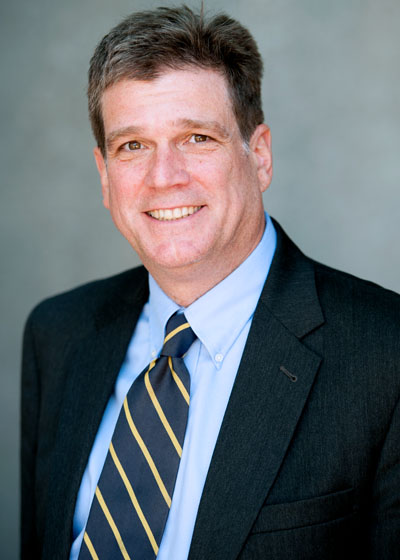 Sean Kennedy
Sean Kennedy
Death Penalty Law Seminar. [Spring 2018] Forty years after the Supreme Court reinstated the death penalty, the justices continue to micromanage capital trials in hopes of fairly applying a penalty that most nations abandoned years ago. Students will study the arcane Eighth Amendment-required procedures while tracking a pending California capital case, from the initial death authorization by the special-circumstances committee to the tail-end attacks on lethal injection procedures. The course ends with each student preparing and presenting a penalty-phase summation.
Professor Kennedy is a former federal public defender who specialized in death penalty litigation.
 Jennifer Kowal
Jennifer Kowal
Executive Compensation. [Fall 2017] How do much do high executive salaries contribute to income inequality and gender and racial pay gaps? If executive compensation is excessive, what can Congress and shareholders do about it? What is "fair pay"? How much do nonprofits need to worry about this? Learn more about the various ways we regulate executive compensation through tax law, securities regulation, and corporate law.
Professor Kowal is an expert on income tax, tax research, and accounting.
 Eric Miller
Eric Miller
Bail-to-Jail: The Criminal Adjudicatory Process. [Spring 2018] Do you want to try criminal cases? Or understand how federal and state rules on criminal discovery, plea bargaining, and jury trials structure the criminal justice process from bail to sentencing? Then you must take this course.
Professor Miller is an internationally recognized expert on specialty courts, who has published a number of articles on judicial discretion and decision-making, as well as the political theory of policing.
 Yxta Maya Murray
Yxta Maya Murray
Law and Literature. [Spring 2018] In Law and Literature, we will discuss the Big Questions that both lawyers and artist tackle: Who is sane, and who is mentally ill? When does a person die? What sorts of relationships are valid? What is the significance of history? And even, what does it mean to be happy? By reading case law, and works by Tolstoy, Shakespeare, Virginia Woolf, Jorge Luis Borges, Toni Morrison, and W.G. Sebald, we will find that the artist and lawyer often come to different conclusions about these quandaries, and that artists challenge the basic assumptions of legal thought and legal method.
Women and the Law. [Fall 2017] Alert students of reality will have noticed that gender and sexuality justice is in a state of emergency. In Women and the Law, we will tackle these assaults -- beginning, perhaps appropriately enough, with the Presidentially-pertinent issue of sexual assault, and continuing with current events pertaining to Intersectionality, such as the Wall, the Ban, Black Lives Matter, the yanking of trans protections in high schools, reproductive freedom, and the work/life balance. The legal and political possibilities raised by the Women's March and Slutwalk will also get airing. In class, we'll process what's happening right now in a dialogue-rich class where we read the amazing work of Maggie Nelson, Kimberle Crenshaw, Dean Spade, Catharine MacKinnon, Margaret Montoya, and Angela Harris. Paper course.
Professor Murray teaches and writes about art, literature, poverty, race, gender, sexuality, and class. Her current project concerns an oral history and Fifth Amendment analysis of gentrification issues in Boyle Heights.
 Lee Petherbridge
Lee Petherbridge
Biological Foundations of the Law. [Fall 2017 or Full-Year] Can biology explain how we think? To what extent is law a product of evolution? This course challenges basic ideas about law from a scientific perspective. Recommended for students interested in jurisprudence and science.
Professor Petherbridge is an expert in biological sciences and holds the Richard A. Vachon, S.J., Fellowship.
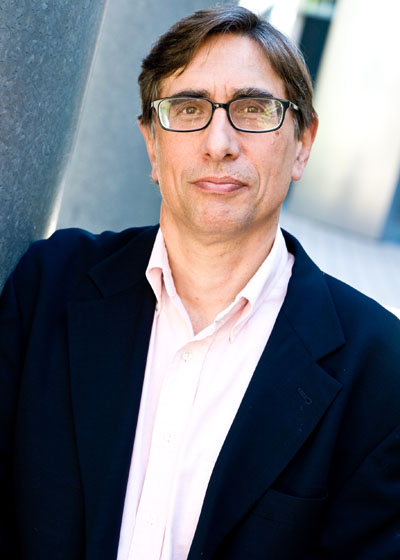 Samuel Pillsbury
Samuel Pillsbury
American Legal History: The Story of Freedom in America. [Spring 2018] Have you ever started watching a TV series in the middle and tried to figure out what was going on? Ever joined a group that has been together for years and try to catch up with everyone's back story? In some ways that's how we learn law. In most courses and appellate cases there are historical recaps, but like TV recaps, they leave out a great deal. This course goes back to the nation's beginnings and fills in basic parts of our national law story so that we can better understand where we are today. Students will see how we have been struggling for centuries over basic ideas of freedom (originally called liberty) in the law. In addition, students will deepen their knowledge of basic American history and learn basic techniques of historical analysis and interpretation useful for law practice.
Advanced Criminal Practice Seminar. [Spring 2018] This seminar introduces the most important nonlaw fields relevant to criminal practice: mental health, substance abuse, trauma, and criminology. The concepts covered are often poorly understood by lawyers, who assume they can leave them to the experts, not realizing that lawyers needs a basic command of concepts and realities to do their job. Student papers in the class may take one of two forms: either present an argument about current law that relates to topics covered in class, or explain clearly and in detail, a nonlaw concept or concepts that is important to criminal practice.
Professor Pillsbury served as a federal prosecutor in Los Angeles before joining the faculty. He writes primarily on criminal law and responsibility. In addition to teaching, he currently serves as a volunteer chaplain in the county jail.
 Elizabeth Pollman
Elizabeth Pollman
Corporate Governance Seminar. [Spring 2018] From corporate social responsibility to CEO pay, this seminar explores advanced corporate law and governance topics from theoretical and practical perspectives. A range of issues are covered, including: theories of the corporation, social enterprise, hot topics about corporate boards, institutional investors, shareholder activism, executive compensation, corporate political spending, the role of corporate counsel, and comparative corporate governance. Recommended for students interested in corporate law, business, in-house work and anyone who would like to better understand corporations and their role in society.
Professor Pollman is an expert in corporate governance, law and entrepreneurship, and corporate personhood.
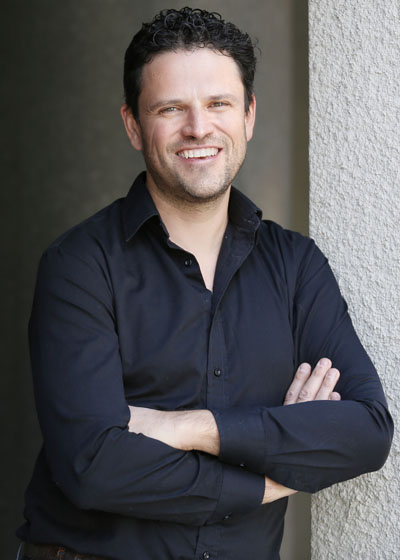
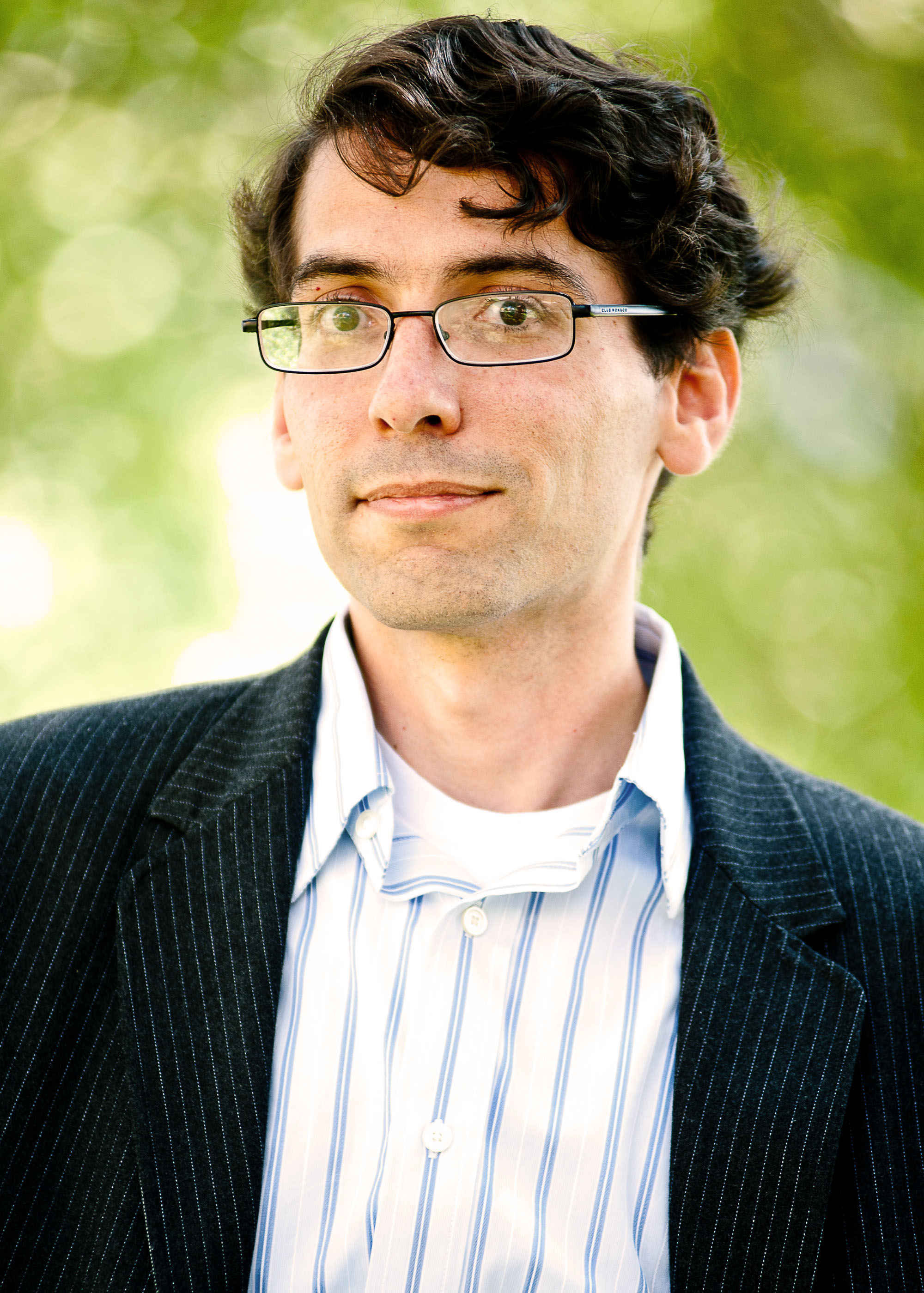 Cesare Romano & Carlos Berdejó
Cesare Romano & Carlos Berdejó
Research Methodology. [Fall 2017] An increasing number of legal and policy issues turn on quantitative and qualitative analyses, from calculating punitive damages in mass tort cases, to measuring racial disparities in policing practices as part of an equal protection case, to evaluating the claims of prospective plaintiffs in a class action with the use of interviews and surveys. In our data-driven world, a working knowledge of the most commonly employed quantitative and qualitative research methods is essential to any well-trained lawyer. Having a basic understanding of these methods will allow you to be a smart consumer of existing empirical work and enable you to assist more effectively those who are conducting these type of analyses on behalf of your client. This will in turn help you be more persuasive as an attorney, whether you are arguing in front of a courtroom or a board room.
Professor Romano is the Academic Supervisor of Loyola’s doctoral program (the JSD). Professor Berdejó, also a Ph.D., is an expert in the interaction of law and economics. Both have done extensive work employing quantitative and qualitative research methodology.
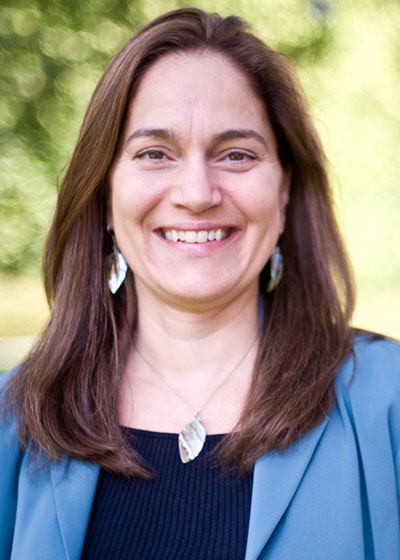 Katherine Trisolini
Katherine Trisolini
Local Governments and the Environment Seminar. [Fall 2017] President Trump’s reversal of U.S. climate change policy has left to state and local lawmakers the critical task of reducing greenhouse gas emissions and preparing community adaptation plans for impending impacts. Fortunately, cities and states already have been spearheading efforts to address climate change. Unlike national (and some state-level) politics, local environmental law has been largely nonpartisan, with mayors of both parties joining collective efforts to reduce emissions. This course will examine the role of local governments in environmental lawmaking on this and other critical issues. Professor Trisolini helps each student develop and refine a research paper to fit his or her unique interests.
Professor Trisolini is an expert on environmental law, energy, and climate change.
 Kimberly West-Faulcon
Kimberly West-Faulcon
Advanced Topics in Constitutional Law. [Fall 2017] Does the U.S. Constitution protect transgender bathroom access? Do civil rights laws prohibiting a baker's refusal to bake a wedding cake for a same-sex couple violate the Frist Amendment's free speech or free exercise clauses? Is President Trump's travel ban constitutional? Students in Advanced Topics in Constitutional Law will examine a broad range of legal topics such as Presidential Power, the Second Amendment, the Equal Protection Clause as well as the Religion Clauses and the major theoretical and doctrinal disputes facing today's U.S. Supreme Court.
Professor West-Faulcon is a constitutional law scholar and a former civil rights impact litigator.
 Adam Zimmerman
Adam Zimmerman
Mass Torts Seminar. [Spring 2018] The Volkswagen Scandal. BP Oil Spill. Agent Orange in Vietnam. A Water Crisis in Flint. NFL Concussion Litigation. Civil litigation in our courts is dominated by mass tort cases. By recent count, almost 40% of all federal cases involve mass actions. This seminar explores the practice and theory of mass litigation, including the ethical problems involving lawyers; new substantive laws and court procedures designed to help us resolve big disputes, while safeguarding individuals' due process rights; and how courts try to resolve national problems consistently, while protecting federalism values. In so doing, students will engage in role playing exercises--reviewing memoranda, negotiating settlements, and performing oral argument during the various phases of the NFL Concussion Litigation.
Professor Zimmerman is a prize-winning teacher and scholar. He previously served as counsel to the September 11th Victim Compensation Fund.
For additional offerings, please see the course catalog.